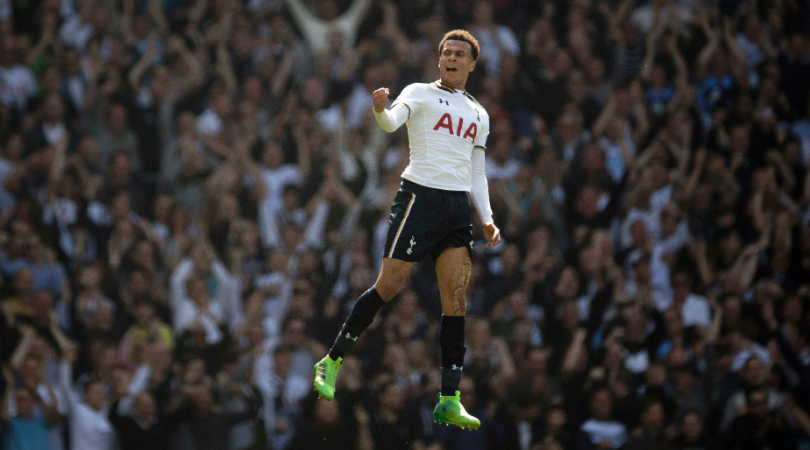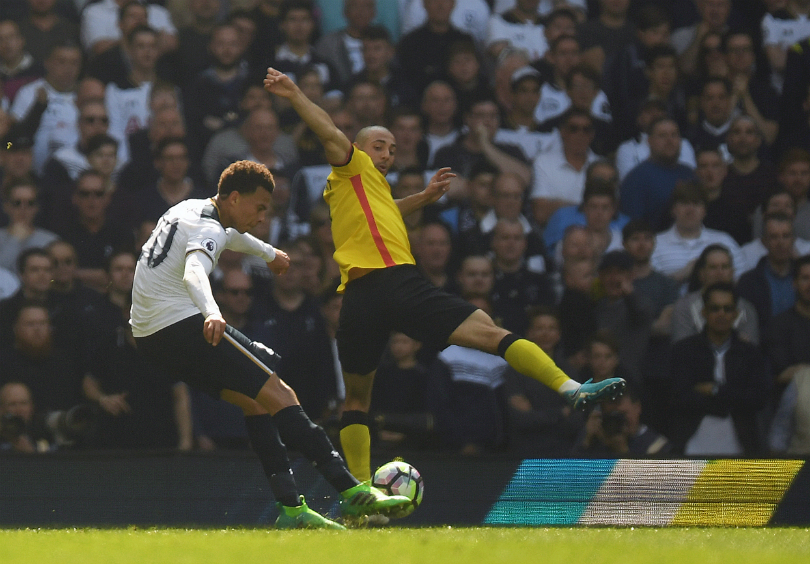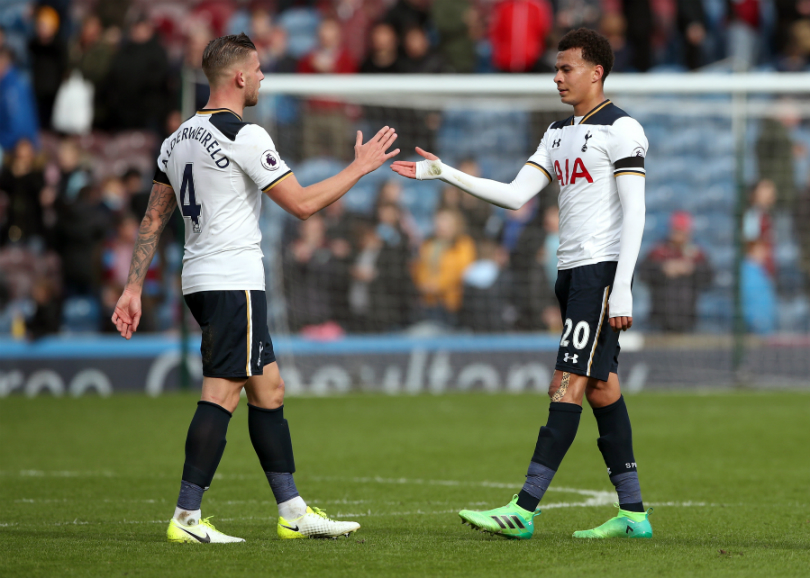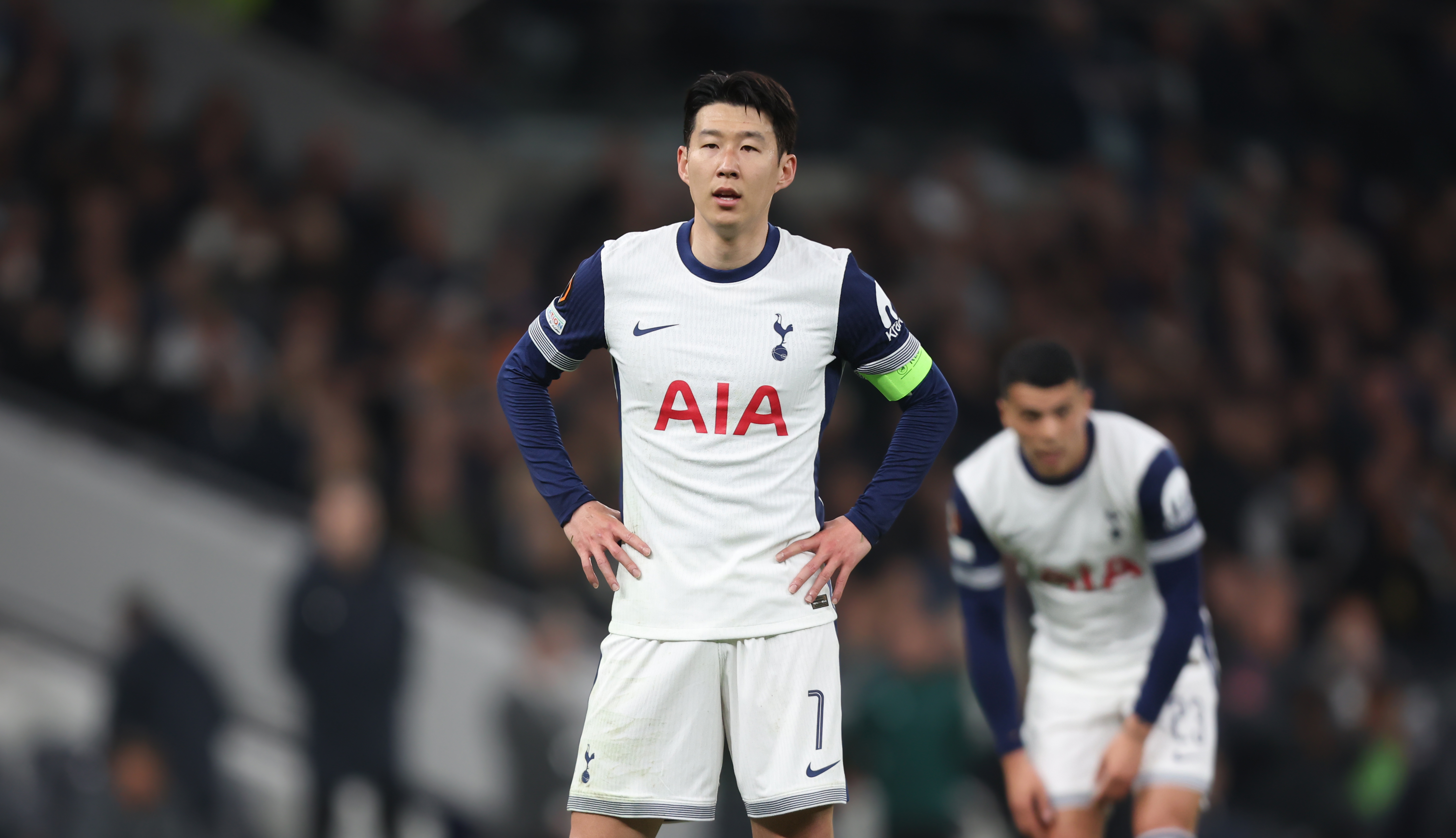Dele Alli is different: why the Spurs star is a new type of modern English footballer
At 21, Dele Alli is drawing comparisons with established greats of the game, but it's the diversification of his own play which shows his true worth

The statistics have been branded on football's consciousness: by the time of his 21st birthday, Dele Alli had been involved in more goals than this player, this player, and that one. If there’s one grievance with pure statistics, though, it’s the propensity they have for draining the joy from the game and sandbrushing its detail down to binary code.
In this instance, measuring Alli by the volume of his contribution also comes with a risk of ignoring what it is that allows those numbers to be compiled.
Saturday afternoon against Watford at White Hart Lane felt like a mini-coronation. Alli gave Tottenham the lead with a gently arching shot from the angle of the penalty box and that goal, with its majestic flight and smooth angles, was just perfect enough to frame the last 18 months of his career.

It was a summation moment: so comprehensively well-executed as to serve as the exclamation point on everything which has happened to date.
However, that goal was also different. It was a new entry in his catalogue, unlike any scored before. Ordinarily, young players are celebrated for particular traits and, at the beginning of their careers, being able to do certain things particularly well. In the past, the British public marvelled at Michael Owen’s pace and poise, cooed over David Beckham’s broad passing range, and giddily watched as a teenage Wayne Rooney ploughed over defenders many years his senior.
By contrast, Alli doesn’t have that. Social media may keep a rough tally of his nutmegs over the course of a season, but he’s really without a singular trait. Sum him up in one word? Nope, can’t do it.
Ironically, that actually exposes the truth in this Beckham, Lampard, Gerrard comparison folly.
Get FourFourTwo Newsletter
The best features, fun and footballing quizzes, straight to your inbox every week.
While it’s superficially preposterous to compare him with those players at the moment, there’s some credibility in saying that, even now, Alli represents a blend of some of their finest parts. Lampard’s late breaks into the box, Gerrard’s goal-scoring habit and Beckham’s better-than-you swagger; it’s as if he’s cherry-picked those attributes from each of them and reimagined them in his own style.
His range of goals are the evidence for that.

Quick growth
Conveniently, there’s a stylistic chasm between his first goal for Spurs and his most recent. His castling of Watford’s Heurelho Gomes was the bookend to a sequence which began with a scrambled nudge past Kasper Schmeichel in August 2015. Consider the variation of what's come between those two points: the thumping drive on his England debut, the chest-and-finish at Goodison Park and that wonderful, balletic volley against Crystal Palace.
His selling point is his ability to reinvent particular types of goals by instinctively embellishing on past precedents
But splendid as those goals were, they don’t necessarily depict the breadth of his range. There may not be such a thing as a quintessential Dele Alli goal, but that’s true of most players who regularly reach double-figures. Instead, his selling point - and what makes him so hard to defend against - is his ability to reinvent particular types of goals by instinctively embellishing on past precedents.
The goal against Everton mentioned above was, for instance, a developed version of a similar effort he had produced at The Hawthorns several weeks before. And the Selhurst Park moment, though in a category of its own, was essentially a trapeze artist’s take on his Premier League goal at White Hart Lane: a simpler juggle-and-hit against Aston Villa.
In each case, one didn’t necessarily inform the other, but they did provide a vivid depiction of his personal growth. As did his two headed goals against Chelsea at the beginning of the year: they decided that game in his team’s favour but, before they went in, who knew that he had that in his game? The third goal in the recent win over Everton - the flicked half-volley with the outside of his foot - that was new too.
Every week, a new layer.

One of the perennial criticisms of English players has concerned their inability to adapt to changing surroundings. That, ultimately, is the tie which binds many of the unfulfilled talents in this country: the shoots of promise have often emerged, but rarely have they flowered fully. Not coincidentally, that’s one of the areas targeted by Dan Ashworth, the FA’s technical director, with his much-maligned England DNA concept. Within its business speak and pie charts lies the determination to cultivate a different sort of player - smarter, more adaptable and, consequently, more likely to succeed in an unpredictable landscape.
Alli is not remarkable because of his statistics or any tenuous links which can be drawn to former players, but because he’s so at odds with his surroundings
Alli has emerged too soon for the FA to take credit for him, but he’s a useful prototype nonetheless. It’s tempting to believe that, in the past, he’s exactly the sort of player who the English would have to admire from afar: a South American glimpsed on YouTube perhaps, or an Italian player working niche television audiences into a frenzy.
Ultimately, Alli is not remarkable because of his statistics or any tenuous links which can be drawn to former players, but because he’s so at odds with his surroundings. He doesn’t fit any of the rigid definitions used to label British footballers.
Instead, he’s a shape-shifter; always adjusting, tweaking and getting better. His goals chart his ability to stay ahead of defensive intelligence, but they also illustrate his rate of diversification - and, by implication, the difficulty faced in subduing him. It’s football’s equivalent of the relationship between computer viruses and software protection: one is always a step ahead of the other, always developing new strengths and learning to exploit new weaknesses.
So while that dynamic is supposed to encapsulate the English footballer of the future, Dele Alli is now and already at the height of modernity.
Seb Stafford-Bloor is a football writer at Tifo Football and member of the Football Writers' Association. He was formerly a regularly columnist for the FourFourTwo website, covering all aspects of the game, including tactical analysis, reaction pieces, longer-term trends and critiquing the increasingly shady business of football's financial side and authorities' decision-making.
